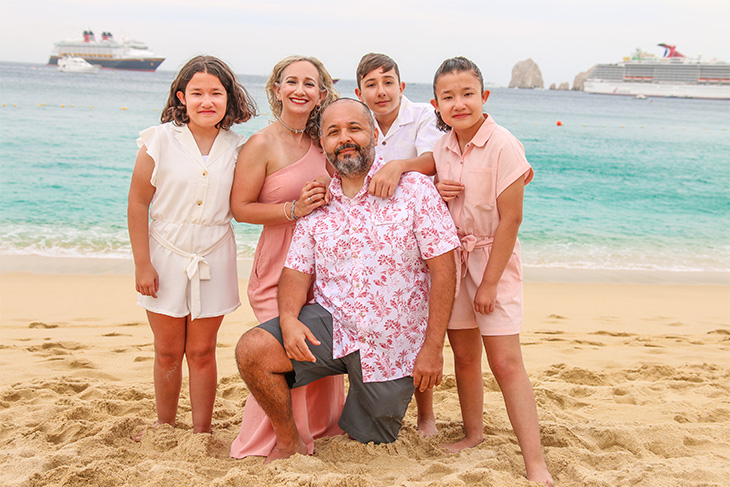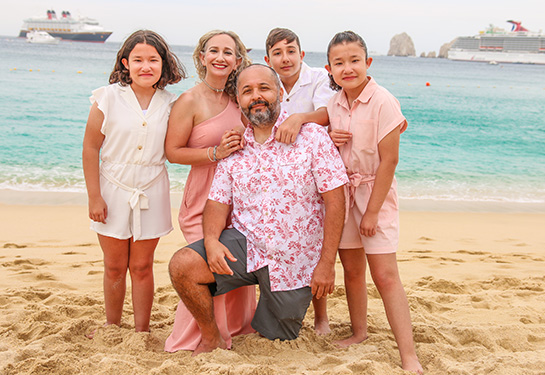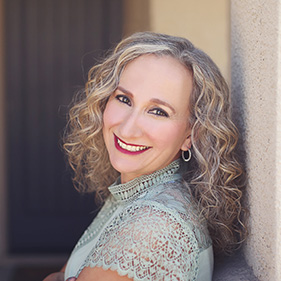Life with 22q: Parents of twin girls with the genetic condition share their story
Families all over the world are working to raise awareness of 22q11.2 deletion syndrome, commonly called 22q. One of those families lives in the Marysville area, near Sacramento. Criss and Americo Madrigal have twin 12-year-old daughters, Celeste and Alexia, who have the genetic condition. They also have a 14-year-old son, Geovany. Their daughters receive care at the UC Davis MIND Institute, which specializes in the research and care of neurodevelopmental conditions, and has a clinic dedicated to 22q care.
Celeste and Alexia were born with heart defects and only one kidney and had open heart surgery as infants. When Criss Madrigal learned of their diagnosis while she was still pregnant, it was the first time she had ever heard of 22q.
The twins’ development was delayed, and they struggled with illnesses like pneumonia frequently. But over the years the family sought out many therapies and other interventions and now the girls are thriving.
“Celeste and Alexia are doing amazing!” Criss Madrigal said. “They are in seventh grade and enjoying their pre-teen days.”
What is 22q?
22q is the result of a missing piece, or deletion, on the long arm of the 22nd chromosome known as 11.2, which is where the name comes from. It has a wide range of possible health impacts, including heart defects, immune system deficiencies, changes in the shape of the face and roof of the mouth, speech challenges, kidney problems, mental health challenges and more.
These impacts can vary widely and no one person is affected quite the same way. The condition occurs in about 1 in every 2,000 – 4,000 people.
In this Q&A, Criss and her husband Americo Madrigal share their perspectives and offer guidance for other parents who may be facing a similar diagnosis.

When people ask you about 22q, how do you typically respond?
Criss: It’s the most common syndrome no one has ever heard of. It can go undiagnosed for many because it can present itself in over 180 different ways in the body.
What do you wish other people knew about 22q?
Americo: There are a lot of hidden symptoms you can’t tell by physically looking at somebody, but improvements can be made with the correct therapies.
Over the years, what therapies and treatments have you found the most helpful?
Criss: Celeste and Alexia have had numerous therapies since they were infants, and all have been helpful. If I had to highlight a few, I’d say physical, speech and vision therapy. Their immunologist also recently prescribed an antibody treatment to address their compromised immune systems. We’re hopeful that this will reduce, or even eliminate, their recurrent cases of pneumonia. As Celeste put it, vision therapy “made my eyes stronger,” and physical therapy “helped make my back more straight.” Both girls have some scoliosis. And Alexia said, of the immune treatment, “I don’t like them because they hurt a lot, but I like not getting sick.”
Why do we need greater awareness of 22q?
Americo: With more awareness, there could be more doctors and services available, especially in the smaller, more rural areas.
Criss: The more we educate and bring awareness to the different ways 22q can present itself, I am hopeful it will help other families find a diagnosis.
How has parenting two girls with 22q changed you?
Criss: It made me a stronger human being. It has shown me how vulnerable life can be and reminds me daily to only focus on the things I can control.
Americo: It brought an awareness of how vulnerable we are when we cannot control our wishful outcomes. No matter what ailments there may be, do not settle for the basic medical norms and always seek alternatives and new methods of treatment.
It’s the most common syndrome no one has ever heard of. It can go undiagnosed for many because it can present itself in over 180 different ways in the body.”—Criss Madrigal
What advice do you have for parents who have recently received a 22q diagnosis for their child?
Americo: Don’t panic and try not to get overwhelmed with all the possible scenarios, especially the most extreme. Don’t lose focus on the diagnosis that is presented to them and focus on the present.
Criss: Have faith in science and technological advances. Seek all possible therapy treatments they believe can benefit their child, and only seek advice from professionals and trusted organizations.
Related stories and resources:
Mother of twins with 22q offers hope for other families dealing with genetic syndrome
All about 22q (Facebook Live discussion featuring Criss Madrigal)
The UC Davis MIND Institute in Sacramento, Calif. is a unique, interdisciplinary research, clinical, and education center committed to deepening scientific understanding of autism and other neurodevelopmental conditions. It is a highly collaborative center, bringing together families, researchers, clinicians, community leaders and volunteers with the common goal of developing more personalized, equitable, and scientifically proven systems of support and intervention. The institute has major research efforts in autism, fragile X syndrome, chromosome 22q11.2 deletion syndrome, attention-deficit/hyperactivity disorder (ADHD) and Down syndrome. More information about the institute and its Distinguished Lecturer Series, including previous presentations in this series, is available on the Web at mindinstitute.ucdavis.edu.






